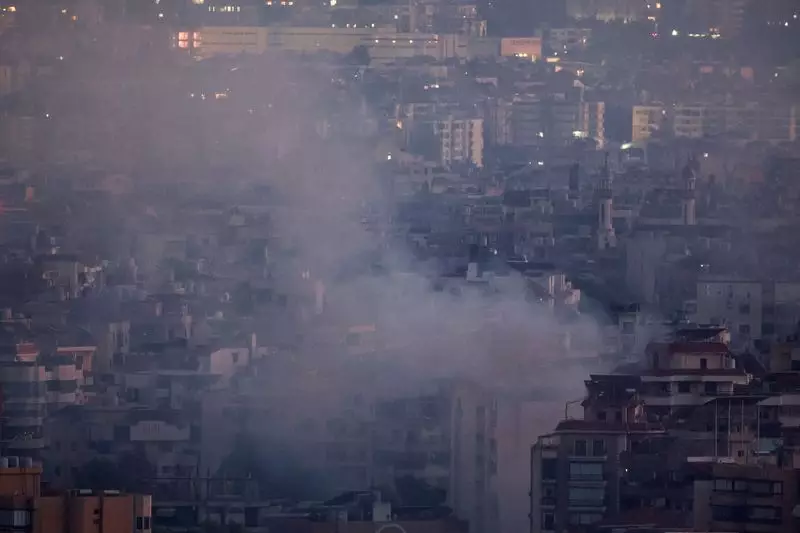The conflict in the Middle East is once again pushing towards a perilous climax, demonstrated starkly by an Israeli airstrike in Beirut. On a recent Monday, reports emerged that three leaders from the Popular Front for the Liberation of Palestine (PFLP) were killed as Israeli military actions intensified in the region. This strike, which took place in the Kola district of Lebanon’s capital, marks a significant escalation, as airstrikes had historically been limited to southern Lebanon or specific military targets in its suburbs. With the backdrop of a broader regional conflict including Iran, Hezbollah, and the Houthis, this incident raises concerns about how the dynamics of power and military action are shifting throughout the Middle East.
The airstrike on Beirut is not an isolated event; rather, it reflects Israel’s broader strategy to counteract perceived threats from Iranian proxies in the area. Prior to this incident, Israel had bombarded various sites in Lebanon and Yemen, targeting the Hezbollah militia and Houthi forces respectively. The Houthi forces, who have been engaged in their own regional disputes, have witnessed attacks following missile strikes that they launched towards Israel. The evolving landscape is marked by both sides heightening their military presence and operations, with Israel asserting its intent to secure its northern front against perceived Hezbollah aggression.
This uptick in military actions has resulted in significant casualties and disruptions. Reports indicate that Lebanon has experienced considerable loss of life, with over a thousand casualties reported by government sources in just two weeks, including civilians. The airstrikes have forced approximately one million residents to flee their homes, which constitutes a worrying humanitarian crisis. The sheer scale of displacement and violence raises the question of how long regional powers and external entities can contain the fallout before they are drawn into direct military involvement.
The Broader Context: A Rising Conflict
Israel’s military operations are often justified through the lens of national security, but the broader implications of these strikes play out in a complex web of power dynamics, regional alliances, and international diplomacy. The United States has been vocal in its commitment to supporting Israel, yet it has also advocated for a diplomatic resolution to the ongoing conflicts in the region. The dichotomy between military reinforcement and diplomatic efforts showcases the challenges of navigating the nuanced and often volatile Middle Eastern landscape.
As the situation evolves, the potential for the conflict to escalate further is palpable. With increased attacks comes the risk of revenge strikes from militant groups, which could lead not just to civilian casualties but also to wider regional instability. The presence of Iran as a key ally to groups like Hezbollah makes it evident that any escalation could spiral into a confrontation involving multiple nations, drawing in external actors like the United States and allies who may not have a direct stake in the ongoing hostilities.
Perhaps the most tragic aspect of the recent escalation is the disregard for human life amid these power struggles. Civilians in Lebanon are bearing the brunt of military actions, reflected in tales of families seeking refuge in public spaces such as Zaitunay Bay, turning dining areas into makeshift shelters. The visible hardships faced by displaced populations highlight the human ramifications of geopolitical strategies. It emphasizes the ethical considerations that often get lost in the narrative of conflict, focusing instead on military objectives and territorial control.
As the airwaves are dominated by discussions about missile strikes and militant actions, it is paramount to remember the civilians affected—the families, the children, and the communities being torn apart. International humanitarian efforts must reevaluate how they respond to such crises and ensure that their focus remains on alleviating human suffering rather than becoming part of the geopolitical chess game.
The recent airstrike in Beirut reflects a critical juncture in the ongoing Israeli-Palestinian conflict and its entanglements with various Middle Eastern actors. As the stakes rise, so too must the urgency for diplomatic solutions that prioritize human life and the restoration of peace. The lessons of history teach us that prolonged military engagements often lead to unintended consequences; thus, it becomes imperative for all parties involved to reconsider their strategies and foster dialogue over firepower. The events unfolding today will ultimately shape the future of the region—one that could either descend further into chaos or seek a path toward reconciliation.

